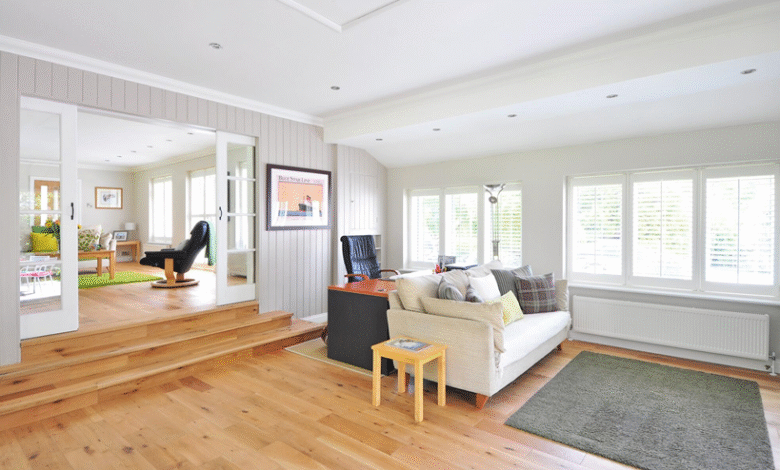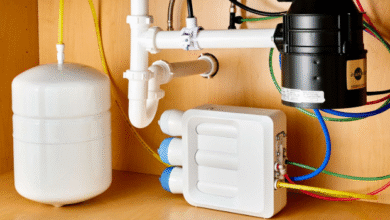Residential Hardwood Flooring Refinish Services for a Fresh Look

Your home holds stories in every corner. Some of them are quiet, others loud. But many begin beneath your feet. Hardwood floors have a way of catching the light, holding time, and making a space feel grounded. As years go by, those floors pick up little signs of life-scuffs from boots, scratches from chairs, and soft wear from dancing feet.
It’s easy to forget that the floor once had a deep glow. That it once shined in a way that made your home feel brand new. What if you could bring that feeling back?
You can. With the right touch, the wood can glow again.
Keep reading to see how your floors can be transformed into something bold, warm, and fresh-all without changing the heart of your home.
Why Wood Floors Deserve New Life
Wood is strong. It ages well. Even the toughest floors get tired. Life brings in dirt, spills, grit, and noise. That’s part of the charm-but it also wears down the finish.
Still, the beauty is not lost. It’s just hiding under years of living.
A fresh finish doesn’t mean starting over. It means letting the floor you already love look its best again. The same knots, the same lines, the same wood-just brighter, smoother, and ready for more.
Signs Your Floor Is Ready for a Refresh
You may not notice the change at first. But over time, the wood can look dull. It loses that shine that used to bounce light across the room. You may also see deeper scratches, watermarks, or rough patches.
Shoes clicking on worn wood don’t sound the same. Mopping doesn’t clean the way it used to. That’s your floor telling you it’s ready.
If rugs don’t lay flat or furniture wobbles just slightly on the surface, it may be time. These are little things. But they add up. And they can make your home feel off in a way you can’t quite name.
Refinishing brings back more than shine. It brings balance.
See also: Keeping Your Home Clean While Working from Home – Tips from Our Cleaners
What to Expect from the Process
Many think hardwood floor refinishing is messy or hard. But it doesn’t have to be. A trusted team knows how to move with care and keep things clean. They will begin by sanding down the old top layer. This clears away the scratches, the stains, and the dull spots.
Then they apply a new coat. That coat can change the color slightly, or simply bring back the original tone. Either way, it locks in protection and gives the wood room to breathe again.
It’s not just a fix. It’s a reset.
Choosing the Right Finish for Your Style
Not all finishes look the same. Some floors shine like glass. Others have a softer, more matte look. There are also finishes that bring out the grain or warm up the color.
This is your chance to shape the feel of your space. A light matte finish works well in open, airy rooms. A deep, rich gloss might be better for a classic or formal space.
Work with a team that listens. They’ll help you choose a finish that fits your home-not just now, but for years to come.
Saving Time and Money in the Long Run
A full floor replacement is costly and time-consuming. Refinishing, on the other hand, brings many of the same benefits for much less. And because it extends the life of your current floor, it’s a smart choice for homeowners who love what they already have.
Hardwood floor refinishing helps you avoid bigger repairs later. It also raises your home’s value. Buyers notice floors. They look down and see care-or neglect. Freshly finished floors make a lasting impression.
It’s more than just cost-saving. It’s value-building.
When to Schedule Your Project
Refinishing takes a little time and planning. Most jobs last a few days, depending on how large the area is and what finish you choose. It’s best to do it when the weather is mild-spring or fall are ideal.
You may need to stay off the floors for a short while, especially after the finish is applied. But once it’s dry, you’ll be walking across something that feels like new, even if it’s been there for decades.
The key is picking the right time and the right team.
Choosing a Team You Can Trust
Not every company treats wood with the respect it deserves. Look for professionals who listen, explain the process clearly, and give your space the time it needs.
They should offer options and answer your questions in a way that feels honest and open. A good team works like a partner. They don’t just refinish floors-they renew your trust in your space.
And if you’re searching for experts in hardwood floor refinishing, make sure they use high-quality tools and care for every inch like it’s their own.
Why It’s More Than Just the Floor
When your floors look fresh, your whole space feels different. Light feels brighter. Furniture stands out. Rooms seem more open, more alive. That feeling spreads. It makes you want to tidy up. To rearrange. To welcome others in.
It’s not just a floor. It’s the base for your life. It’s where kids sit and play. Where guests drop their bags. Where pets stretch out in the afternoon sun.
When your floor feels whole, so does your home.
A New Finish, A Fresh Beginning
Your floor has been through a lot. It’s seen quiet mornings, loud holidays, dropped plates, happy feet. It holds all of that. It remembers.
So give it a little care in return. Let it shine again. Let it become part of your future, not just your past.
The best part? You don’t need new wood. You just need new life in the wood you already love.
Bring the Glow Back to Where You Live
Your home doesn’t need to change walls or add space to feel brand new. Sometimes, it just needs a better foundation. And that foundation is often underfoot.
Let your floors rise again. Let them tell your story with warmth, strength, and light. Because when your feet feel good, your heart does too.
A fresh floor can mean a fresh start-and that’s always worth walking into.
For more on this content, visit the rest of our blog!




